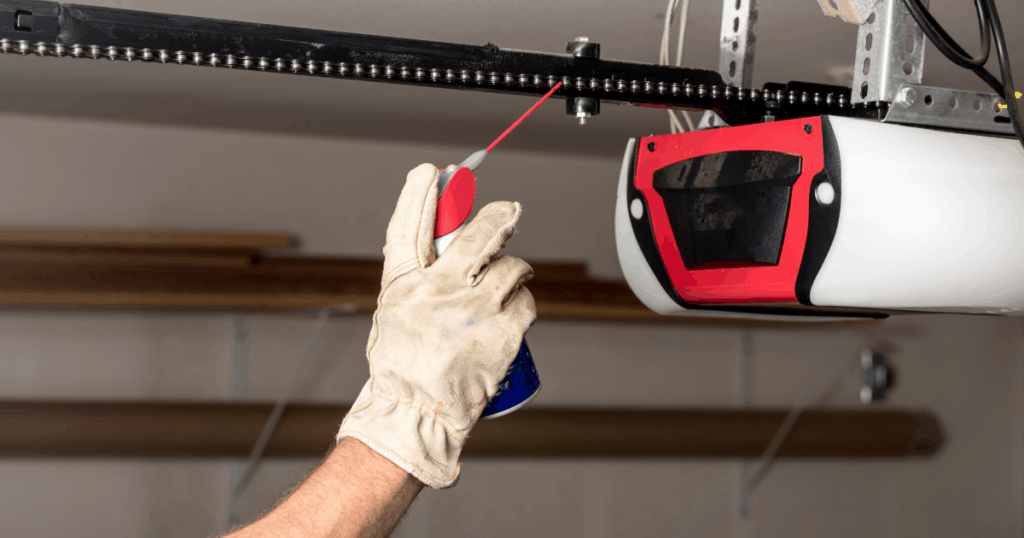When it comes to home convenience, a garage door opener plays a pivotal role. However, understanding the longevity of this essential device is crucial. In this comprehensive guide, we will explore the factors that influence how long a garage door opener should last and provide insights into maximizing its lifespan.

How Long Should A Garage Door Opener Last?
The lifespan of a garage door opener depends on various factors, and there isn’t a one-size-fits-all answer. On average, a well-maintained and properly installed garage door opener can last anywhere from 10 to 15 years. However, several elements contribute to the overall longevity.
Read too: Is There A Reset Button On Garage Door Openers and How to Use It Effectively: Unlocking Solutions
Factors Influencing Lifespan
1. Frequency of Use
The more frequently a garage door opener is used, the shorter its lifespan. If you have a bustling household with multiple vehicles coming and going, or if your garage serves as a primary entry point, the opener will experience more wear and tear.
2. Quality of Installation
The installation quality significantly impacts the durability of a garage door opener. A professionally installed opener, following manufacturer guidelines, is likely to outlast one installed hastily or incorrectly.
3. Regular Maintenance
Regular maintenance is a key factor in extending the lifespan of a garage door opener. Simple tasks like lubricating moving parts, checking the alignment, and tightening loose bolts can prevent premature wear and enhance overall performance.
4. Climate and Environmental Conditions
The climate in which you live can influence the lifespan of your garage door opener. Extreme temperatures, humidity, and exposure to harsh weather conditions can accelerate wear on the device. Consider climate-specific models or take additional protective measures.
5. Quality of Components
The quality of the garage door opener and its components is paramount. Investing in a high-quality opener with durable materials and a reputable brand can contribute to a longer lifespan. Cheaper, lower-quality models may need more frequent replacement.
Signs Your Garage Door Opener Needs Attention
Even with proper care, there comes a time when a garage door opener shows signs of wear. Being proactive and addressing these signs promptly can extend its lifespan:
1. Unusual Noises
If your garage door opener starts making grinding or squeaking noises, it’s a clear indication of wear on the moving parts. Lubrication or component replacement may be necessary.
2. Slow Response Time
A sluggish response time, whether in opening or closing the garage door, may signal a decline in the opener’s efficiency. This could be due to various issues, such as worn-out gears or a weakened motor.
3. Inconsistent Movement
If the garage door opener exhibits inconsistent movement, such as jerking or hesitating, there may be underlying issues with the motor or the door itself. A professional inspection is recommended.
Extending the Lifespan of Your Garage Door Opener
To ensure your garage door opener reaches its maximum lifespan, consider implementing the following practices:
1. Regular Inspection
Perform routine inspections of your garage door opener, checking for loose components, unusual sounds, and signs of wear. Addressing issues early can prevent further damage.
2. Lubrication
Regularly lubricate the moving parts of your garage door opener, including the tracks, rollers, and hinges. This simple maintenance task can reduce friction and extend the life of the components.
3. Professional Maintenance
Schedule periodic professional maintenance to assess the overall health of your garage door opener. Experienced technicians can identify potential issues before they escalate.
4. Upgrade as Needed
If your garage door opener is outdated or showing signs of significant wear, consider upgrading to a newer model. Technological advancements may provide enhanced features and improved durability.
Conclusion
In conclusion, the question of how long a garage door opener should last is influenced by various factors, and there is no universal answer. However, by understanding these factors and implementing proactive maintenance measures, you can significantly extend the lifespan of your garage door opener. Regular care, timely repairs, and occasional upgrades will not only enhance the longevity of the device but also contribute to the smooth and efficient operation of your garage door for years to come.



Leave a Reply